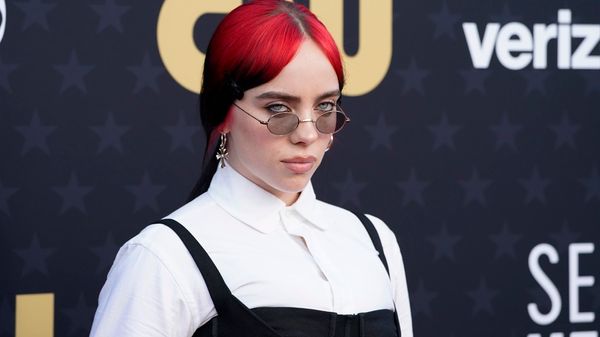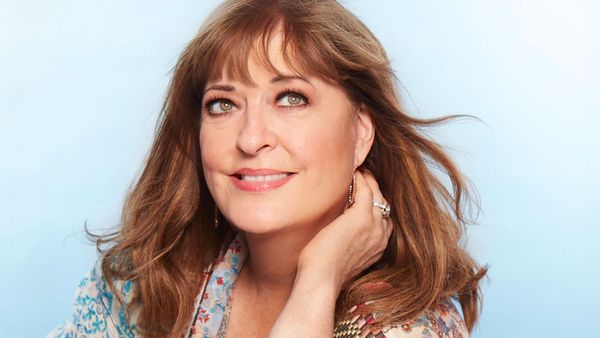Apr 4
Tom Ripley Over the Years: To Queer or Not to Queer?
Frank J. Avella READ TIME: 9 MIN.
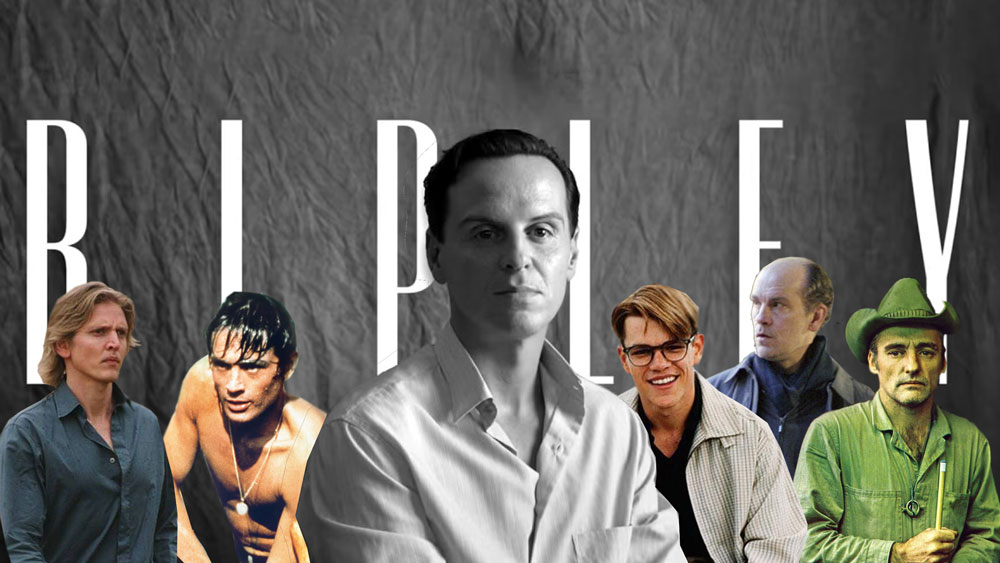
The Netflix series, "Ripley" is based on Patricia Highsmith's bestselling Tom Ripley novels, but mostly concentrates on the first, "The Talented Mr. Ripley." The eight-part series, which premiered on Thursday, April 4, stars Andrew Scott, fresh from his year-end success in Andrew Haigh's "All of Us Strangers."
But Scott isn't the first – and likely won't be the last – to play Highsmith's ethically challenged anti-hero. Since 1977, four other actors have played Tom, but more on them shortly. First to the latest version.
Created, written, and directed by Oscar-winner Steve Zaillian, this "Ripley" is certain to be divisive. Its one great asset is Scott, who is always fascinating to watch, even when the series insists on trying the viewer's patience with a plethora of scenes of plodding minutiae. Ripley walks to the bank. Ripley enters the bank. Ripley writes a check. Ripley waits, nervously, for funds to be approved. Ripley receives his funds. Ripley leaves the bank. Ripley walks back home and up endless stairs. Ripley enters his room. Ripley sits. Ripley stands. Ripley puts on a record. Ripley sits and listens to the music. You still awake?
To his credit, Zaillian is faithful to Highsmith's basic plot, in which a wealthy businessman asks grifter Tom Ripley (Scott) to travel to Italy, expenses paid, to persuade his son, Dickie Greenleaf (Johnny Flynn), to return home. Upon arriving, the envious (and sociopathic) Tom covets Dickie's lifestyle and inserts himself into his world, much to the distaste of Dickie's girlfriend, Marge Sherwood (Dakota Fanning). Not before long, Tom weaves a web of deceptions that leads to murder.
Watch the trailer to "Ripley"
Curiously, the series is shot in black and white (by Oscar-winning cinematographer Robert Elswit), which makes its gorgeous Italian settings appear seedy and grimy, which amounts to something of the reverse to John Seale's sumptuous camerawork on "The Talented Mr. Ripley."
Speaking of that 1999 version, writer-director Anthony Minghella made certain changes to Highsmith's work, most significantly deciding that Tom was gay. Minghella, it seems, needed to underscore that there was a more personal reason for Tom's obsession than envy and greed, so in his version Tom not only wanted to be Dickie, but also wanted do him. For the record, Highsmith denied Ripley was gay, straight, bi, or otherwise; instead, he didn't have a defined sexuality, but was an opportunist who would sleep with anyone, as long as it served his agenda. Later in life, Highsmith admitted she was not sure if Tom was gay, but he did appreciate men – especially good-looking men.
Surely, then, Tom and Dickie are going to have some flirtation. Alas, not in Zaillian's version. Tom only flirts when it suits his needs, making him an awfully dull boy. Dickie doesn't seem interested in anyone either, not even Marge, who suspects Tom wants Dickie (based on what, I have no idea). And there is very little chemistry between the two men. While this may all be faithful to the original source material, why, in 2024, would Zaillian want to remove one of the most interesting aspects of the story as it has evolved – the queer aspect?
Zaillian's credits include "Schindler's List, "Gangs of New York," "American Gangster," and "The Irishman" – an impressive list, to be sure, but is there anything queer about his work? This adaptation eschews queerness, and instead focuses on Ripley's sociopathy. This begs the question: Couldn't there be both? Just imagine what Todd Haynes or Andrew Haigh might have done with the material.
I also take issue with most of the Italian characters being portrayed as buffoons, or what I like to call the "House of Gucci" Syndrome. Va fanculo!
At EDGE we thought this would be a great opportunity to reexamine the five previous Ripley film adaptations, and assess them based on just how queer and fabulous they were (or in a couple of cases, weren't), providing alternate "Ripley" versions for our readers to experience.
Let's begin with the most exhausting and least queer entry...
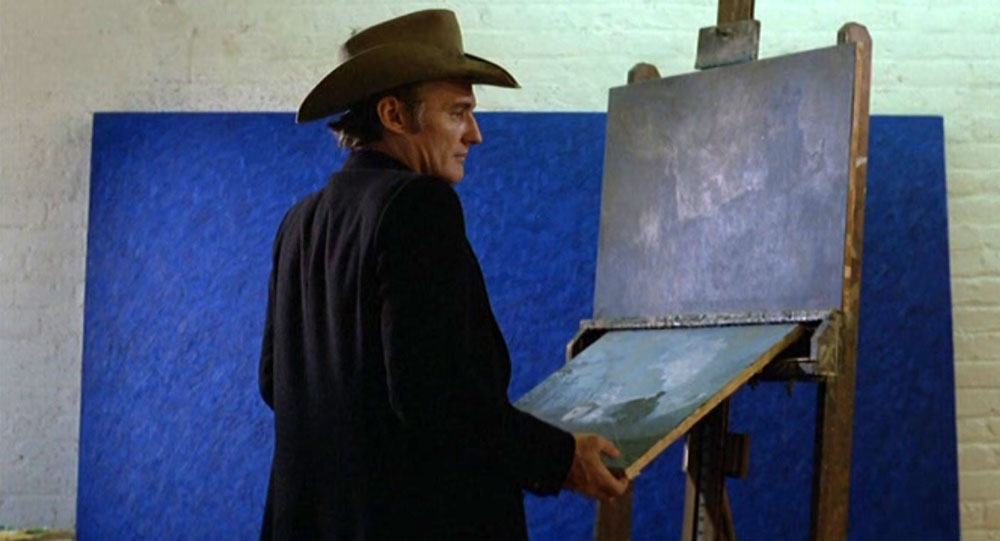
'The American Friend'
Watching Wim Wender's 1977 neo-Noir-wannabe, "The American Friend," is akin to watching paint dry. It's fascinating for about three minutes, and then not – although, if you follow the critics at the time, this slog was highly regarded. (And I'm a Wenders fan.)
Based on Highsmith's 1994 novel "Ripley's Game," the film is devoid of any homoeroticism. It is only saved by an intriguing performance by Bruno Ganz, as a picture framer who may or may not be dying and gets caught up in murder thanks to our hero, played by the least sexy Ripley, Dennis Hopper, in what amounts to a supporting role. It's said Wenders wanted John Cassavetes, who turned the role down, probably because he read the obtuse script. He might have brought some sexiness to the interminable proceedings. We'll never know.
Highsmith denounced the film when she first saw it, but did a 180 on a second viewing. Please don't torture me with the threat of a second viewing!
"The American Friend" is streaming on The Criterion Channel.
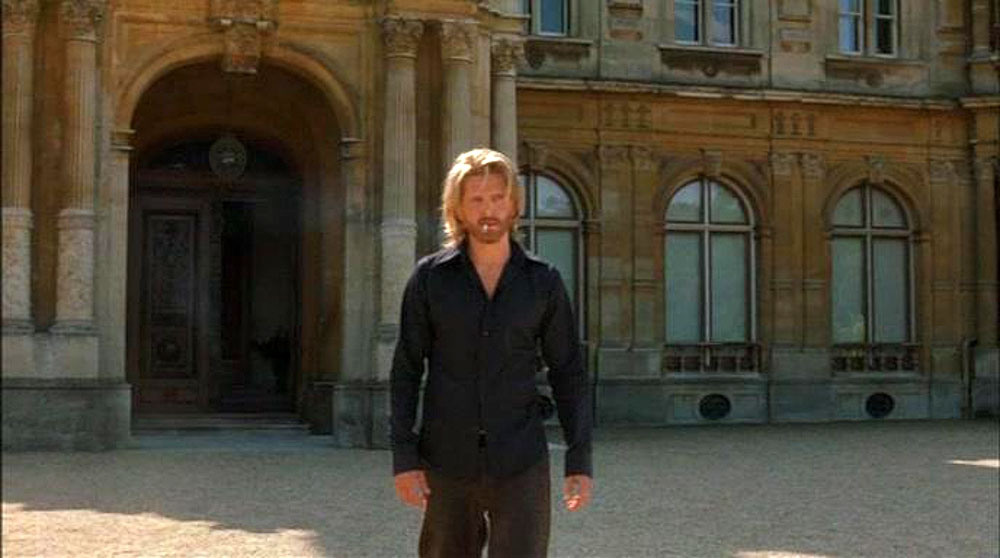
'Ripley Under Ground'
Roger Spottiswoode's "Ripley Under Ground," based on the novel of the same name with a script (by W. Blake Brown & Donald E. Westlake) at least has a sense of humor. But this Tom Ripley, played by "Saving Private Ryan" sharp-shooter Barry Pepper, is as uber-straight as Clint Eastwood. Pepper may have some sex appeal, but he's otherwise a reluctant murderer and a lothario without much complexity or nuance.
The film sometimes succeeds in blending broad comedy with suspense-thriller moments. Alan Cumming plays an art gallarist, and provides much needed touches of camp, and Willem Dafoe is remarkably subdued as an art aficionado.
The film was shot in 2003 and received a very small release in 2005.
"Ripley Under Ground" can be streamed for free on YouTube.
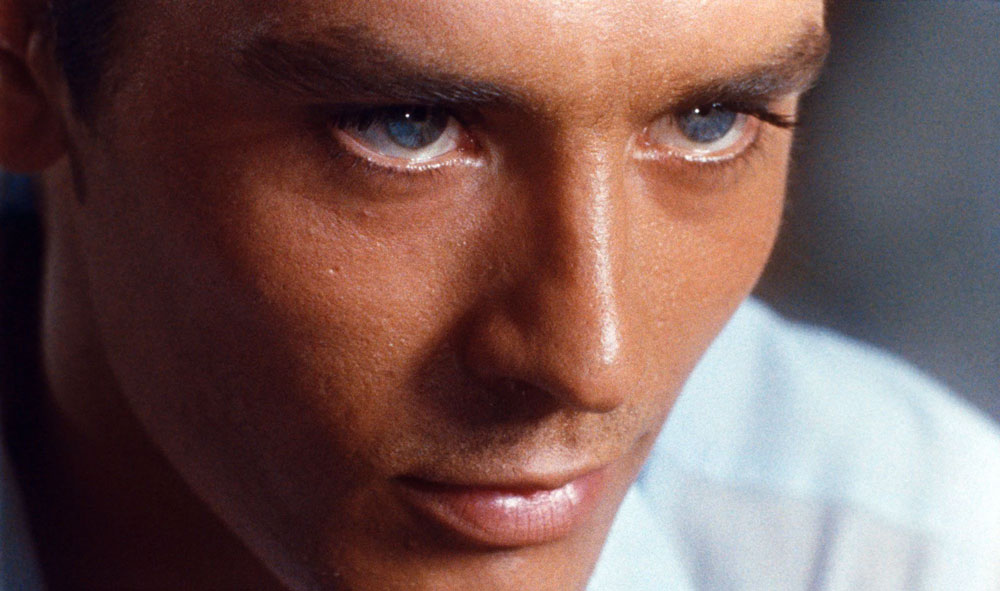
'Purple Noon' ('Plein Soleil')
There was never a more strikingly handsome Ripley than Alain Delon in 1960's "Purple Noon," directed by celebrated French filmmaker René Clément, who co-wrote the script with Paul Gégauff. The film was the first of its kind, released just five years after the original novel, "The Talented Mr. Ripley," was published.
The movie follows the book faithfully, except for a denouement that felt more forced (due to code standards) than in keeping with Highsmith's more ambiguous ending. Here Dickie is Phillippe (Maurice Ronet), but there's very little chemistry between him and Tom, who, oddly, taunts him and confesses his plan to pretend to be him.
Gorgeously shot by Henri Decaë, "Purple" boasts stunning close-ups of Delon's face – his seductive blue eyes – that will make you swoon. Delon is arguably the most enigmatic Ripley, but he's easily the sexiest; seeing the half-naked Delon is as homoerotic as the film's times would allow. At one point, Delon dons a skimpy bathing suit, and the camera appears to zero in on his crotch.
A Delon footnote, there have been many rumors over the decades about his early same-sex dalliances (with certain lovers coming forward), yet, in 2013, he called homosexuality "unnatural" and said gays should not adopt children. Perhaps we get a bit addled in our twilight years, when our looks begin to go...
"Purple Noon" is currently streaming on The Criterion Channel and can be rented via Prime and AppleTV.
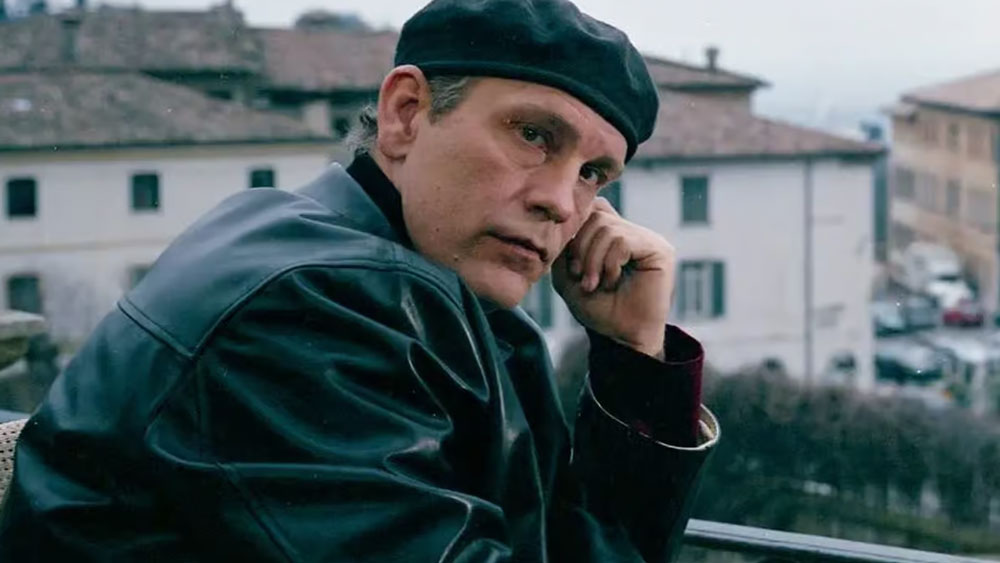
'Ripley's Game'
Liliana Cavani is one of Italy's best and most underrated filmmakers ("The Night Porter," "The Skin"), so it's no surprise that her 2002 take on "Ripley's Game" presents a perfect balance of dark comedy and the macabre. It also boasts a queer aesthetic and a deliciously flamboyant central performance by John Malkovich, who has an amusing cameo in the Netflix series.
Malkovich is by far the most menacing and terrifying Ripley, as well as the most sardonic and witty. Casually planning a murder while on a train, he turns to a co-star (cutie Dougray Scott) and matter-of-factly quips, "Keep my watch, because if it breaks, I'll kill everyone on this train." And he's probably serious.
The moment that sets the plot insanity in motion could not be bitchier, ergo gayer. Ripley shows up at a party and hears the host, Trevanny (Scott), disparaging him. Insulted, he sets out to destroy Trevanny by involving him in a crazy assassination plot led by Tom's gay thug friend (Ray Winstone).
There is even a tinge of attraction between Malkovich and Scott, especially in a scene near the end of the film.
And while this Tom is married, in the film's one intimate scene, he seems much more interested in his wife's backside than her front.
"Ripley's Game" can be rented on Prime and AppleTV.
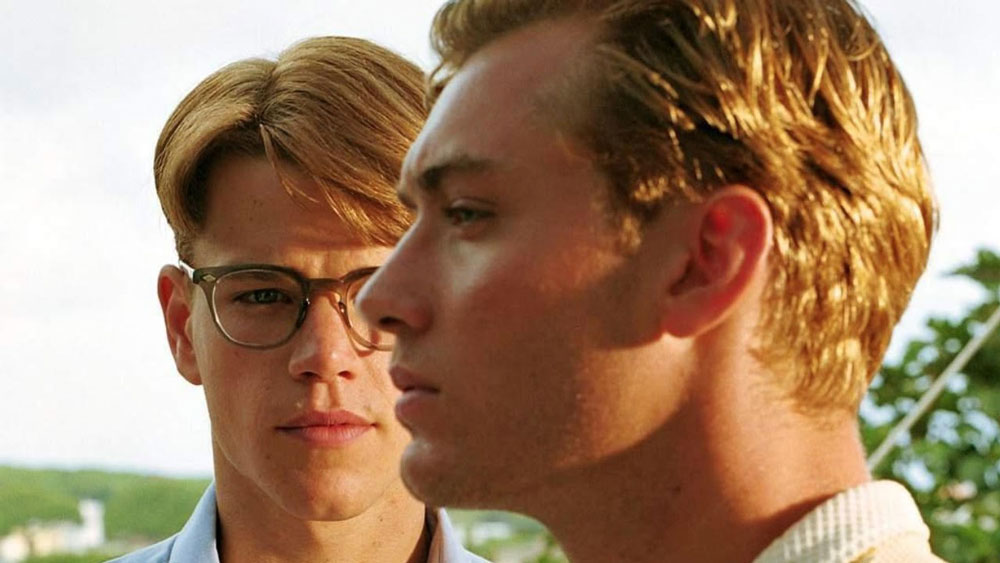
'The Talented Mr. Ripley'
"I always thought it would be better to be a fake somebody than a real nobody." - Tom Ripley
Minghella's 1999 gem is hands-down the queerest and best Ripley. The homoerotic bonding is off the charts, from Matt Damon's constant ogling of hottie Jude Law to Law flirting right back in a few scenes, to the famous bathtub sequence where Tom asks if he can join Dickie in the tub (with the sense that Dickie is bi-curious), to Tom's reaction to his alleged unrequited feelings. Gay wins the day because writer-director Minghella made the obvious and winning choice in adapting the material.
The filmmaker even created two new characters, including a late-in-the-film love interest for Tom, Peter Smith-Kingsley (Jack Davenport, who would go on to star in the queer classic TV series "Smash"), and the fabulous Meredith Logue (played by the fabulous Cate Blanchett), probably to offset the bland Marge Sherwood (played by the bland Gwyneth Paltrow). It's odd watching their one scene together, knowing Paltrow would win the 1998 Oscar for "Shakespeare in Love" over Blanchett's shattering portrayal of the virgin queen in "Elizabeth," in large part thanks to Harvey Weinstein's bullying of Academy members.
Speaking of horrific Harvey, "The Talented Mr. Ripley" was supposed to be the big Oscar movie for Miramax that year (co-produced with Paramount). A year earlier, he managed a ridiculous upset win over DreamWorks ("Shakespeare in Love" topped "Saving Private Ryan"). But when "The Talented Mr. Ripley" opened to less than amazing business and, despite great reviews, was turning off more conservative Academy members at screenings, Weinstein abandoned the film and threw all his efforts into a lesser work, "The Cider House Rules," thinking it would have a better chance beating DreamWorks' front runner, "American Beauty." (It did not.) It was all a vicious winner-take-all game to Weinstein that reeked of homophobia. "The Talented Mr. Ripley" ended up with five noms (including Law for Supporting Actor) instead of rightfully sweeping them. Today, very few give a second thought to "Cider," and "Ripley" is considered a classic – a queer classic.
"The Talented Mr. Ripley" is currently streaming on Showtime, Hulu, and Prime.
Frank J. Avella is a proud EDGE and Awards Daily contributor. He serves as the GALECA Industry Liaison and is a Member of the New York Film Critics Online. His award-winning short film, FIG JAM, has shown in Festivals worldwide (figjamfilm.com). Frank's screenplays have won numerous awards in 17 countries. Recently produced plays include LURED & VATICAL FALLS, both O'Neill semifinalists. He is currently working on a highly personal project, FROCI, about the queer Italian/Italian-American experience. He is a proud member of the Dramatists Guild. https://filmfreeway.com/FrankAvella https://muckrack.com/fjaklute


